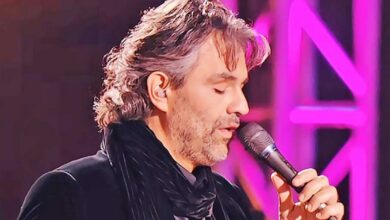Carrie Underwood’s Rendition of “How Great Thou Art” Deeply Moves Listeners
Carrie Underwood’s interpretation of “How Great Thou Art” has left an indelible mark on both her career and the hearts of listeners. This hymn, originally written in the late 19th century, has resonated with audiences for generations, but Underwood’s performance adds a modern depth that enhances its timeless essence. The song’s lyrics reflect a sense of awe and appreciation for the majesty of creation and the divine, themes that Underwood articulates with stunning clarity and emotional intensity.
What truly sets Underwood apart is her intrinsic ability to convey genuine emotion. She approaches each verse with a deep reverence, her voice cascading through the melody like a gentle stream before rising like a powerful waterfall. This dynamic range spotlights her exceptional vocal technique, allowing her to express both vulnerability and strength. Her seamless transitions from soft, contemplative passages to powerful climaxes engage listeners, drawing them into a spiritual journey that is both personal and universal.
The orchestration accompanying Underwood’s vocals plays a crucial role in amplifying the song’s emotional weight. The lush arrangement serves to elevate the hymn from a simple melody to a full orchestral experience. The blend of strings, piano, and subtle choral backing creates a rich sonic landscape that envelops the singer and listener alike. This careful attention to arrangement reflects Underwood’s artistic vision, ensuring that each performance remains a fully realized experience rather than just a vocal showcase.
Underwood doesn’t merely sing “How Great Thou Art”; she inhabits it. Her connection with the lyrics, drawn from a deep well of personal faith, lends authenticity to her interpretation. This sincerity is palpable, allowing her to forge an immediate bond with her audience. Attendees often report feeling a sense of comfort and upliftment during her performances, creating an almost communal atmosphere wherein shared beliefs are acknowledged and celebrated collectively.
Educators, theologians, and music critics alike hail Underwood’s take on this hymn, often citing it as a powerful statement about faith in contemporary music. Her rendition speaks to both traditional audiences accustomed to the classic hymn as well as newer generations who may be less familiar with the piece. By bridging this gap, Underwood champions the enduring relevance of gospel music, affirming its place in both religious and secular spheres.
Carrie Underwood’s journey to becoming one of the leading voices in country music is equally inspiring. Born in Muskogee, Oklahoma, she was raised in a devout household that emphasized the importance of faith and community. Her upbringing laid the groundwork for her lifelong connection to music and religion, influencing both her personal and professional life. Winning “American Idol” in 2005 was a pivotal moment, catapulting her into the mainstream and allowing her to share her vocal gifts with a wider audience.
Alongside her musical aspirations, Underwood has made significant contributions to various philanthropic efforts. Her advocacy work reflects her values and her desire to give back to the community. She actively supports numerous causes, including education initiatives, health organizations, and animal rights. This multifaceted commitment to making a positive impact mirrors the themes of service and appreciation found within the hymn itself.
In addition to her philanthropic ventures, Underwood balances her career with family life. As a devoted wife and mother, she often expresses how her faith and family inform her artistic choices. This harmony between her personal life and professional responsibilities further enriches her artistic expression, adding layers of meaning to her performances, including her rendition of “How Great Thou Art.”
The impact of Underwood’s music is profound; she has garnered numerous awards, including multiple Grammys and Country Music Association Awards, solidifying her status as a powerhouse in the industry. Yet, despite her accolades, Underwood remains grounded in her beliefs and personal values. Her dedication to honoring her faith through her music, especially with pieces like “How Great Thou Art,” resonates deeply with her audience, fostering a sense of connection that transcends mere entertainment.
Ultimately, Carrie Underwood’s interpretation of “How Great Thou Art” serves as a testament to her impressive vocal abilities and her genuine faith. It encapsulates her journey as an artist and a person, showcasing how deeply personal convictions can amplify artistic expression. As her rendition continues to be shared and celebrated, it stands as both a beautiful tribute to the hymn’s heritage and a reflection of Underwood’s unwavering commitment to her craft and her beliefs. Her performance invites listeners to not only appreciate the beauty of music but also to reflect on the divine, imbuing each note with profound significance that lingers long after the song has ended.





